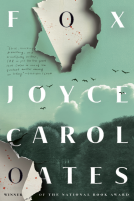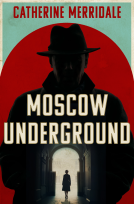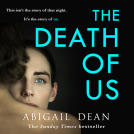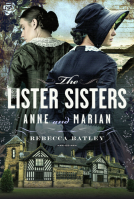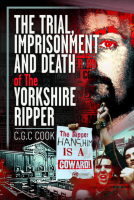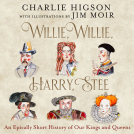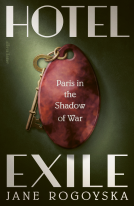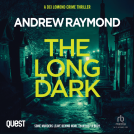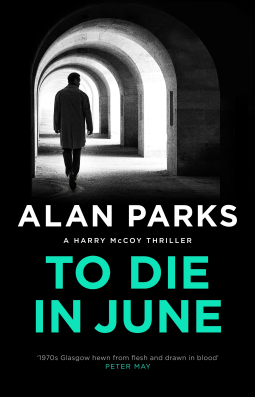
To Die In June
by Alan Parks
This title was previously available on NetGalley and is now archived.
Send NetGalley books directly to your Kindle or Kindle app
1
To read on a Kindle or Kindle app, please add kindle@netgalley.com as an approved email address to receive files in your Amazon account. Click here for step-by-step instructions.
2
Also find your Kindle email address within your Amazon account, and enter it here.
Pub Date 25 May 2023 | Archive Date 25 May 2023
Talking about this book? Use #ToDieInJune #NetGalley. More hashtag tips!
Description
One missing child. Two murders. A midsummer nightmare.
A woman enters a Glasgow police station to report her son missing, but no record can be found of the boy. When Detective Harry McCoy, seconded from the cop shop across town, discovers the family is part of the cultish Church of Christ’s Suffering, he suspects there is more to Michael’s disappearance than meets the eye.
Meanwhile reports arrive of a string of poisonings of down-and-outs across the city. The dead are men who few barely notice, let alone care about – but, as McCoy is painfully aware, among this desperate community is his own father.
Even as McCoy searches for the missing boy, he must conceal from his colleagues the real reason for his presence – to investigate corruption in the station. Some
Advance Praise
From the McIlvanney Prize-winning author of May God Forgive
PRAISE FOR THE HARRY McCOY SERIES:
‘Harry McCoy is the brightest dark star on the tartan noir scene for some time and in future critics of Scottish crime fiction will surely be referring to the triumvirate of Laidlaw, Rebus and McCoy . . . May God Forgive is crime fiction which pulls no punches, powerfully told and, at times, heartbreakingly poignant. One of the crime novels of 2022’
MIKE RIPLEY, author of GETTING AWAY WITH MURDER
‘The Harry McCoy books by the bold Alan Parks just get better and better. May God Forgive starts like a runaway train and just keeps going. If you’re not already reading these books, get onto them now’
LIAM McILVANNEY
‘Expertly handled and morally ambiguous . . . The skillfully written and complex plot builds to a thrilling and highly unconventional denouement’
Bloody Scotland, McIlvanney Prize Shortlist
‘Once again Alan Parks recreates a world of urban blight and spiritual decay . . . [a] grimly gripping plot . . . a remarkable series that began with Bloody January. The novels, as someone once said, can be read in any order; the important thing is to read them all’
The Times
‘One of the great Scottish crime writers . . . Whether it be William McIlvanney, Ian Rankin, Denise Mina or Alan Parks, the way they view – and depict – the world gives great pleasure . . . Like the very best crime novels, The April Dead makes you keenly aware of all the pain out there and (almost) alleviates it’
The Times, Book of the Month
‘Brilliant . . . The April Dead should grace the bookshelves of every crime fan’
Sunday Times Crime Club
‘A blistering plot, unforgettable characters and writing so sharp it's like it's been written with a knife . . . Detective McCoy is a true noir antihero and the perfect guide through the vice and violence of Glasgow's underbelly. Bloody January firmly sets Alan Parks in the same league as Ian Rankin and Louise Welsh’
SARAH PINBOROUGH
‘An old-school cop novel written with wit and economy . . . Think McIlvanney or Get Carter‘
IAN RANKIN
‘1970s Glasgow hewn from flesh and drawn in blood’
PETER MAY
‘The latest star of Tartan noir — perhaps even a successor to the late, great William McIlvanney . . . Gripping, utterly authentic and nerve-jangling, this novel announces a fine new voice in crime writing’
Daily Mail
‘Punchy, compulsive and, at times, as downright nasty as ever’
Herald
‘Compelling . . . Parks is a gifted storyteller’
Scotsman
‘Riveting’
Sunday Post
Available Editions
| EDITION | Hardcover |
| ISBN | 9781805300786 |
| PRICE | £16.99 (GBP) |
| PAGES | 320 |
Available on NetGalley
Average rating from 87 members
Featured Reviews
 Mary H, Reviewer
Mary H, Reviewer
This is a brilliant read, not least because you feel drawn in by the main character straight away and the book is believable. I enjoyed the book and could not put it down until I had finished. Highly recommended. Thank you to netgalley and the publishers for giving me a copy of the novel.
I’ve read all the previous books accept the first in this series and although it’s not my standard read I’ve loved every one of them. Moving McCoy and Wattie to a new station for tactical reasons made for a refreshing change and McCoy seemed a little less jaded throughout this although it did finish on quite an interesting dilemma for him. The storylines continued in the gritty style I’ve come to expect and intertwined well, throw in the usual mix of total characters as well as an unlikely love interest for McCoy and this is another solid read which follows on brilliantly. If you’re new to these books you’d be able to read this as a standalone fine but I’d highly recommend reading the series from the start as they are all so good.
Alan Parks continues to cement his place as the King of Tartan Noir with the sixth book of the Harry McCoy series.
Following on from the shocking ending of Bloody Scotland award winning May God Forgive, To Die in June continues to follow Parks' gritty, fast paced and perfectly written style. McCoy and Wattie are now temporarily based in a different police station which brings new faces and new scores to settle but the regular characters and dry humour that make the series a joy to read still make an appearance.
As always, a perfect continuation of the Harry McCoy series - Tartan Noir at its finest.
Thanks to Canongate Books and NetGalley for the ARC.
Thank you to NetGalley, the publisher and author for this eARC.
This is the second book I’ve read in the authors Harry McCoy series and, like May God Forgive, this is a very good and thrilling read. I think this book is very engaging and well written, and I was drawn into the story right from the start where the author grabbed my attention immediately and held it right to the last page. I really like the main character McCoy and his sergeant, Wattie, and enjoy reading of their working relationship, friendship and love the banter between them. Here they are moved to another Police station and investigate murders of homeless people, a possible missing boy and police corruption. I loved all the different story threads, they piqued my interest, and I found I needed to know what would come next in the story. For me, the authors descriptions of his characters and the scenes are so vivid, I could picture them in my mind when reading and one of the things I like most about this series is the era it’s set in, which the author describes so well. The book raced to a surprising ending tying up most of the threads nicely, and I hope those that weren’t addressed will be explored more in the next book. Based on the two books I’ve read so far I would recommend this series although you are best to read the books in order. I will definitely look to reading the ones I’ve missed and catch up on when I can.
4 ⭐️⭐️⭐️⭐️
I'm a huge fan of crime fiction, especially Scottish crime fiction given that I live there so I am not quite sure why this is my first Alan Parks novel.
This was an excellent first book and I now want to go back and read the rest of the series. McCoy is a fantastic main character and ably supported by Wattie and other colleague.
The Glaswegian language and sense of humour really plays through in this novel and I absolutely loved it.
Thanks to Netgalley and Cannongate for an ARC in exchange for an honest review
 Reviewer 834532
Reviewer 834532
I love crime thrillers but have never been a fan of Scottish crime books because, as a scot, they're so often cheesy and clichéd so I was a bit hesitant about this one but loved the premise so went with it. And omg, am I glad that I gave it chance. This may have actually changed my opinion on reading Scottish crime books.
It's so well written and it really does feel like Glasgow back in the day. There's a humour and a dryness that comes through so clearly. The plot is unique and well written and the characters are realistic and complex. The book has such a good pace and keeps moving forward. I'd absolutely recommend this, it wad an amazing plot and I flew through it in a day
Thanks Canongate and NetGalley for ARC.
Detective Harry McCoy is having a busy year, and it's only June. He and his friend and partner Wattie have been seconded to Possil police station to secretly investigate police corruption. Wattie doesn't know why they are there and that gives McCoy all sorts of problems. He can't escape from his past, either his friendship with a local gangster or the shadow of his alcoholic father, and things get very murky indeed. McCoy begins to think he's in danger of becoming as corrupt as some of the people he is trying to investigate.
This magnificent series evokes the grittier sides of Glasgow in the 1970s without every feeling like a period piece or pastiche. McCoy is a brilliant creation and I'm waiting with bated breath for July.
 Jacqueline S, Educator
Jacqueline S, Educator
Well this was not a disappointment Alan Parks at his best. The description of Glasgow in the 70’s spot on. All the old characters you have grown to love from the previous five books appear as full blooded as ever.
I loved the pace of the book, Harry McCoy and Wattie with their banter. The gangster Stevie Cooper who I feel is a loveable rogue. The plot involves a serial killer targeting the down and outs in the city and the highs and lows of the personal crisis of McCoy. All with a background of police corruption going on in the city.
All together a well paced thriller and a compelling read.
Set in Glasgow in the seventies, you would expect this novel to be hard hitting and unforgiving, It is just that. Harry McCoy has little respect for authority but is astute enough to walk the fine line between insubordination and the sack. And keeping his job is just one challenge, It only takes one rotten apple to spoil the barrel and Harry has landed amongst plenty. I loved the feel of this novel. Today, you would never envisage a copper sitting down in a pub and talking to a suspect or a ‘person of interest’ off the cuff. But that’s just one aspect that contributes to the overall feeling that McCoy is up to the task but can’t afford to turn his back for a second, Gritty, polished and absolutely as rough as they come.
 Noel M, Reviewer
Noel M, Reviewer
Death on the streets of Glasgow in the 1970s isn't an unusual circumstance, as you will know if you are familiar with any of Detective Inspector Harry McCoy's dealings in Alan Parks' series. With the degree of poverty in the city and the amount of down-and-outs on the streets, death by natural causes - if you include drinking yourself to death as natural causes - is not uncommon either. That certainly seems to be the likely verdict on the cause of death of Jamie MacLeod, "Govan Jamie" when he is found on waste ground in May 1975 not far from Argyle Street. It had to happen sooner or later, and there's not much chance that anyone would have a reason to kill him. A witness however tells McCoy that he saw both Jamie and another down-and-out die after drinking from what appears to be tampered hooch in a bottle of Irn Bru.
Still, the deaths of two homeless alcoholics doesn't seem like grounds that will warrant any further investigation by the police, and McCoy has other things to worry about. From the first five Harry McCoy thrillers, we know that Glasgow in the 1970s can be a grim place, but things seem to be particularly unpleasant in the sixth book, To Die in June. Aside from the deaths of the two down-and-outs, there are another couple of stomach churning deaths in the opening chapters, and to make matters worse, McCoy's old childhood friend and gangster Stevie Cooper is making a play for Possil, the district where McCoy is currently posted. A gang war is the last thing he needs on his hands while this handful of recent deaths remains unexplained. All the while McCoy's posting to Possil is supposed to be an undercover operation, keeping an eye on suspected crooked dealing at the station.
It sounds grim, but taking his lead from McCoy's queasiness about blood, Alan Parks is not one to wallow in gory descriptions. He's less interested in salaciousness of the murders than in the underlying social problems that give rise to them. He has other ways to capture the impoverishment and the social inequities in the city in the down-to-earth settings of unsavoury pubs frequented by McCoy, in the dialogues and conversations where he gathers information from the types of characters who inhabit them, many of whom are likely to end up like Govan Jamie, not least of which is McCoy's own estranged father, and indeed McCoy has some demons of his own to battle with.
Inevitably, there are a lot of the elements that seem familiar from previous books in the McCoy series. Former crooks and gangsters are trying to establish themselves as respectable businessmen, brutal gangland wars are still raging, there are concerns about missing children, and there are a lot of grisly deaths involving people at the lower end of the social ladder that no-one seems particularly concerned about. There is another element that is familiar and it's a deeper undercurrent that ties all the other parts together; change and redevelopment. Glasgow is a city ripe for exploitation, the post-war wastelands ready to be wiped away and built on anew. That might sound like a promise of modernisation and an attempt to eradicate poverty, but good intentions are not on anyone's list. There is money to be made, people to be paid-off and a lot of not very nice people involved. Even the police - or at least those not already downright crooked and on the take - struggle to strike a balance between solving crime and putting a lid on it.
That's where McCoy comes in and it's what makes Alan Parks' books fascinating historical social documents as well as hugely compelling crime thrillers. Indeed, Parks started out that way in a fictionalisation of a real-life crime in Bloody January, before the series developed into something else. Some of the elements might be familiar then, but that is because there is a consistency and flow to the series, with different elements rising to the surface over time - the generational differences, the social inequities, the religious divide - and there in the middle of it is the police, or more specifically and pertinently, Harry McCoy. McCoy's allegiances and sense of duty have been tested before and will be tested again. Essentially it's a classic situation of how a good man deals with evil on a daily basis and tries to not be corrupted by it, not take sides, and at the same time not find himself crushed by it all. By the time we have got to To Die in June, it's starting to take its toll on McCoy.
There is a feeling that Parks is essentially just going with the flow, letting all these issue arise naturally out of the world he has (re-)created. Acknowledging the influence of William McIlvenny in this arena, Parks himself knows the Glasgow of this period well and knows that when all the social problems are stirred up by those with money, power and influence, it's a powder keg ready to explode and there will be casualties. Rather then repeating himself, Parks is continually building on previous books, showing how everything that is wrong is connected, that "Poverty will make people do terrible things" and it just takes the flap of a butterfly wing to unleash the chaos. Parks just lets this toxic mix throw up the opportunity for crime and the results, as mentioned earlier, are not going to be pretty, but they can be seen to come from an authentic place.
What also makes it more than just routine - although there is nothing routine really in how Parks relates this - is of course McCoy and his personal problems. We are aware of his difficult background in care, and can see that he is not far away from being a victim like those found on the waste ground of the city, places where his father now is falling apart drinking "red biddie", a lethal combination of red wine and meths. Although a respected police officer, currently stepping out with a movie-star girlfriend, it wouldn't take much for McCoy to end up like his father or like some of the old ex-police officers he encounters who mentored him in the past. Is he his father's son or his adopted father's son? That delicate balance of teetering on the edge, one that characterises the city of Glasgow itself in the seventies, is what makes this such a great series.
But it's not just McCoy; there is tremendous character in even the smallest of roles, from the current and former police officers to the down-and-outs and the witnesses. McCoy's colleague and friend Wattie is growing in confidence and character, beginning to stand up to McCoy, become his own man and more than just a sidekick. There is real development here. None of this takes place in isolation either, but is firmly related to what is going on there on the streets of Glasgow in the 1970s. That could take its toll on anyone, and even more so for someone of McCoy's background and profession. Despite external appearances, he seems more vulnerable, more fragile this time, and the consequences of what takes place in To Die in June are likely to resonate down through the remaining books in this remarkable and compelling series.
 IAIN M, Reviewer
IAIN M, Reviewer
Harry McCoy is an excellent character, an old style police officer, well suited to the rough and tumble of the mean streets of Glasgow. Having previously enjoyed his wanderings on the banks of the Clyde, this book was a ‘must read’ and, as expected, it didn’t disappoint.
If you enjoy Scottish crime, more so covering a period from a few decades ago, this is for you.
Recommend.
 Aidan D, Educator
Aidan D, Educator
DI McCoy is a complex character, brought up in care, best pals with a gangster, alcoholic dad on the streets, incorruptible but sails so close to the wind you're not sure at times. This outing he's transferred to another station to report back on possible corruption. While he's doing that there is an outbreak of multiple deaths amongst homeless alcoholics - he's afraid its murder and that his dad will be next. there's also a missing child who on closer inspection doesn't exist - and more. Page turning action from start to finish, another great read from Alan Parks.
 Vanessa R, Reviewer
Vanessa R, Reviewer
Glasgow, June 1975.
How can a boy be missing when, according to all records, he doesn't exist?
Just one of the problems facing Harry McCoy. Shunted across town to another station to secretly keep an eye on less than exemplary activity amongst his colleagues, the "missing" boy's family is part of a church bordering on a cult. And there are a lot of poisonings, but nobody's too bothered as all the victims are down-and-outs.
Excellent
 Elaine T, Reviewer
Elaine T, Reviewer
I would like to thank Netgalley and Cannongate Books for an advance Copy of To Die in June, the sixth novel to feature DI Harry McCoy set in Glasgow in 1975.
A woman reports her young son, Michael, missing, but there is no record of him. They belong to an extreme religious sect and that makes McCoy suspicious, so he keeps investigating. At the same time he is looking in to the poisoning of several homeless men, no one else cares but his father is part of that community. This is all happening in Possil where McCoy and his sergeant “Wattie” have transferred to allow him to investigate potential corruption.
I thoroughly enjoyed To Die in June, which paints a realistic picture of life in Glasgow at the time and has a compulsive storyline with several strands. It is told from McCoy’s point of view, so the reader gets a close up view of events, most of which are either sad or dangerous. There wasn’t a lot of optimism at the time and the plot reflects that reality.
I found the novel intriguing. None of the crimes are blockbusters destined for the headlines, but they are all different and it was incredibly difficult to work out where they were going or how they would turn out. It rouses the reader’s curiosity and keeps the pages turning. I’m not sure if I found any of the resolutions satisfying as this novel has so much more of the moral ambiguity hinted at in the previous novels as McCoy crosses more than a few lines. I’m not saying that he has become an outright criminal, but at what point does the end justify the means? It’s very blurry.
The novel is well paced with each of the strands having a place and developing gradually. There are some twists, but the author saves the best for last with some big revelations that may be explored in future novels. All in all it is a well executed novel in pacing and plotting.
Harry McCoy is a very flawed character and his life choices are not the best, often landing him in bad situations. It is these situations and how he resolves them that take him far from the moral high ground. He’s self aware enough to realise this and this seems to contribute to his spiral. He’s very well drawn, as are the other characters. Their interactions will make weep or laugh.
To Die in June is a good read that I have no hesitation in recommending.
 Carolyn S, Reviewer
Carolyn S, Reviewer
DI Harry McCoy is back in another 1970s gritty crime novel. It’s the beginning of summer and Glasgow is warming up, but many of it’s streets are still mean and dirty and crying out for demolition and renewal. Someone is killing off homeless men sleeping rough with poisoned alcohol and Harry is determined to stop it. He and his partner DS Watson (Wattie) have been posted to Possil police station, where Harry started his career on the beat. His DCI believes there might be some corruption in the station and has sent Harry in undercover to sniff it out. Poor Wattie has no idea what’s going on and is not happy about it. Meanwhile he and Harry have a murder to solve and his old friend, crime lord Stevie Cooper, has started a gang war on his patch and wants Harry to help him with inside information.
This is Scottish noir at its best. The description of the mean streets and grotty pubs of Glasgow, along with the humour and vernacular of the inhabitants is very atmospheric and paints a vivid picture of the city fifty years ago. Harry is such a great character whose character has really developed over the series. He’s basically a tough cop with a strong sense of justice despite his difficult past. Although he’s well respected by felons and police alike, he treads a not so straight line himself between crime and following the rules. He’s currently dating an actress and, although everyone keeps telling him he’s punching above his weight, I hope she sticks around for a while. It’s also good to see Wattie also developing into a good, confident cop who is great at handling Harry, even when he gets frustrated at him for keeping things back. This is a very solid addition to the series and I can’t wait to see what July will bring for Harry and Wattie.
 Librarian 98022
Librarian 98022
Thanks to the publishers and NetGalley for access to an early copy for review
Alan Park's novels are one of the titles I look forward to most each year - Harry McCoy and his sergeant Wattie are brilliant characters, and they don't let down in this years novel. It's now June 1975 and they've been seconded to Possil (another Glasgow police office). As they try to settle in a woman reports her son missing ... but there is no record of her son anywhere. Meanwhile, Glasgow's down and outs seem to be being targeted with poison (which means that McCoy has more reason to worry about his dad) and there are rumblings between gang leaders, including Steve Cooper. McCoy has to deal with all of this while trying to keep the real reason he's been seconded under the radar so he can complete the mission.
It's another belter from Parks ... and the only downside is the wait for the next book
 Kerry M, Reviewer
Kerry M, Reviewer
I never repeat the blurb. Another step this fascinating series which I have followed from the start. The complexities of the main character are boith perplexing at times but also surprising, as the story explores his work and relationships with both the ordinary and the dark sides of people and life in 70s Glasgow. Roll on July! Can't wait!!
 Joan C, Reviewer
Joan C, Reviewer
Another great read by Alan Parks. Having read his previous books about Detective Inspector Harry McCoy this didn't disappoint. The story involving a missing girl takes you into the gangland streets of Glasgow and McCoy's friendship with his long time friend Stevie Cooper. Definitely to be recommended.
 Alan G, Reviewer
Alan G, Reviewer
I've been on the Harry McCoy journey right from the start and Glasgow's most unorthodox 1970's police detective just keeps getting better and better and his methods more un police like.
Hoping that Alan Parks is going to keep this winning formula going for sometime to come and that he has many more planned. Although this could be read as a standalone book as certain background issues are covered, I would nonetheless recommend starting at the beginning of the series and read all six in order.
Thanks to NetGalley and the publishers for the ARC in return for an unbiased review.
I have read two previous Detective Harry McCoy novels so To Die in June is my third but will it be my last? In this novel, Harry McCoy's chickens have surely come home to roost. He's doing favours he shouldn't be but ever the pragmatic polis, he exercises his own form of justice. I really like the period the novels are set in, where the only high tech is probably a polis radio made by Pye or Burndept. Detective McCoy must be the epicentre of a perpetual fug, I expect he's a forty a day man (and that's when he's trying to give up). The state of his lungs, throat and mouth aren't the only health issues he has, as he complains about a threatening stomach ulcer especially when he hits the booze. However, Harry's had a very tough life and childhood so we can forgive him a few vices. He's also got a very cynical view of the church (no doubt from his childhood) and it's borne out in this novel, sadly to the further detriment of his health and up-market suit. The ending of the book makes me wonder if that be the last we hear of McCoy. I do hope not as he's one of my favourite cops.
 Lee C, Reviewer
Lee C, Reviewer
To Die in June is the 6th book in the consistently excellent Harry McCoy series by Alan Parks.
Set in 1970s Glasgow it brings the city and its inhabitants to life and is another worthy addition to the series.
If you like true noir crime then this is the book and series for you.
 Martha B, Reviewer
Martha B, Reviewer
Book 6 in the Harry Mc Coy series, set in 1970's Glasgow, is as fresh as book 1. The characterisation is very good and I love the dynamics between Harry and Wattie. There is grit, suspense and some beautiful descriptive, emotional passages in this well thought out plot. I was transported right back to my 20's as a young police officer in Glasgow's south side. I would really recommend reading the series in order to fully understand the events. Thanks to Net Galley for my ARC.
 Jason R, Reviewer
Jason R, Reviewer
First book I've read by the author and in the DI McCoy series. You get a real flavour of life of the police and the criminals, with often blurred lines between both, in 1970s Glasgow. The police certainly liked a ciggie and a drink back then!
Deftly plotted with elements of black humour running throughout the book, Alan Parks is a master of Scottish crime fiction.
Already ordered the first book in the series and fully intend to read the rest in order, something I'd recommend new readers to the series do.
 Greville W, Reviewer
Greville W, Reviewer
The sixth in a compelling series, this is gritty stuff with a wonderful portraiture of Gasgow in the 70s tough, unrelenting and crime ridden.
Harry McCoy is an enigmatic policeman, committed to his job yet perhaps a touch too close to some of the villains that frequent his patch.
The writing is spare and yet witty at times, the action relentless, the plotting complex yet credible and the characters well drawn.
There is not much else you can ask for in a police procedural.
Highly recommended.
 Ciaran S, Reviewer
Ciaran S, Reviewer
Another cracking release in Parks’ Harry McCoy series - the most dependable annual series I can think of right now. Usual balance of a couple of new investigations with the ongoing relationship with gang boss and old friend Cooper; To Die in June perhaps dials down the bleakness a wee bit (it’s coming in summer after all), but continues to explore the pervasive impact of corruption in the 70s police force, heavy drinking culture and the underbelly of the streets.
A somewhat downbeat ending leaves questions for July….
Readers who liked this book also liked:
Linda Collister; National Trust Books
Cooking, Food & Wine, Crafts & Hobbies, Home & Garden
Catherine Merridale
General Fiction (Adult), Historical Fiction, Mystery & Thrillers
Chris Cook
History, Nonfiction (Adult), True Crime
Yamily Habib
Biographies & Memoirs, Entertainment & Pop Culture, Nonfiction (Adult)



